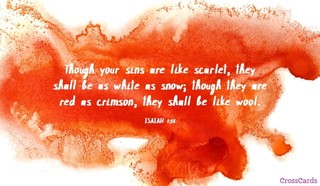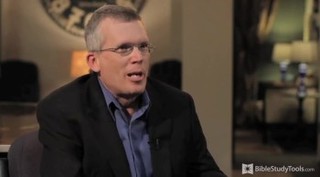
- Recent Translations
- All Translations
Isaiah 1:1
Share
Settings
Images for Isaiah 1:1

Isaiah 1:1 Meaning and Commentary
The vision of Isaiah the son of Amoz
This is either the particular title of the prophecy contained in this single chapter, as Jarchi and Abarbinel think; seeing the second chapter ( Isaiah 2:1 ) begins with another title, "the word that Isaiah saw" or rather it is the common title of the whole book; since it is the vision which Isaiah saw in the reign of four kings, as is later affirmed; and so is no other than in general "the prophecy of Isaiah", as the Targum renders it; called a "vision", because it was delivered to him, at least the greatest part of it, in a vision; and because he had a clear perception of the things he prophesied of, as well as delivered them in a clear and perspicuous manner to others: hence the Jews say F13, that Moses and Isaiah excelled the other prophets, seeing they understood what they prophesied of. The name of Isaiah, the penman of this book, signifies either "the Lord shall save", according to Hilleras F14; or "the salvation of the Lord", as Abarbinel, Jerom, and others; and is very suitable to the message he was sent with to the people of God; to acquaint them that the Lord had provided a Saviour for them, and that he would come and save them. He is said to be "the son of Amoz"; not of Amos the prophet; the names differ; the name of the prophet that stands among the twelve lesser prophets is (owme) , "Amos"; the name of Isaiah's parent is (Uwma) , "Amoz". It is a tradition with the Jews {o}, that Amoz, the father of Isaiah, was brother to Amaziah, king of Judah, so that Isaiah was of the royal family. Abarbinei endeavours to confirm it from that greatness of mind, freedom and boldness, he used in reproofs, and from his polite and courtly way of speaking; and this is mentioned by Aben Ezra as a reason why the Jews did not harm him, as they did Jeremiah: but this tradition is not equally regarded by the Jewish writers; and though Kimchi takes notice of it, yet he says the genealogy of Isaiah is not known, nor of what tribe he was. If he was of the seed royal, this is an instance of God's calling some that are noble, not only by his grace, but to office in his church; and it is with a view to this tradition, no doubt, that Jerom F16 calls him "vir nobilis", a "nobleman". It is also a rule with the Jews F17, that where the name of a prophet's father is mentioned, it is a sign that his father was a prophet; and so they say this Amoz was, though the king's brother; and that he is the same with the man of God that came to Amaziah F18, ( 2 Chronicles 25:7 ) but Aben Ezra suggests, that this rule does not always hold good. Which he saw concerning Judah and Jerusalem;
that is, chiefly and principally; for though Ephraim, or the ten tribes of Israel, are mentioned, yet very rarely; and though there are prophecies concerning other nations in it, yet these relate to the deliverance of the Jews from them, or to God's vengeance on them for their sake. Judah is put for the two tribes of Judah and Benjamin, and is particularly mentioned, because the Messiah, so much spoken of in this book, was to spring from thence, whose title is the Lion of the tribe of Judah; and though Jerusalem was in it, yet that is also particularly taken notice of, because not only the temple, the place of divine worship, was in it, and it was the metropolis of the land; but because the Messiah, when he came, was often to appear here, and from thence the Gospel was to go forth into all the world; and this was a figure of the Gospel church state to the end of the world, which often bears this name: and many things are said in this prophecy not only concerning the coming of Christ, but of the Gospel dispensation, and of various things that should come to pass in it; concerning the glory of the church in the latter day, the calling of the Gentiles, the conversion of the Jews, the destruction of antichrist, and the new heavens and new earth. In the days of Uzziah, Jotham, Ahaz, [and] Hezekiah, kings of
Judah:
if Isaiah began to prophesy in the first year of Uzziah's reign, as Kimchi and Abarbinel think, relying pretty much on ( 2 Chronicles 26:22 ) and lived out the reign of Hezekiah, as he must, if he was put to death by Manasseh, according to the tradition of the Jews, he must prophesy a hundred and twelve or thirteen years; for Uzziah reigned fifty two years, Jotham sixteen, Ahaz sixteen, and Hezekiah twenty nine; but as this seems to begin his prophecy too soon, since so small a part of it was in or concerns Uzziah's reign; so it seems too late to fix the date of his prophecy from the year that King Uzziah died, when he had the vision in ( Isaiah 6:1-13 ) and desired to be sent of the Lord; which is the opinion of Jarchi, Aben Ezra, and others; but Dr. Lightfoot's opinion is more probable, who places the beginning of his prophecy in the twenty third year of Uzziah; though perhaps it may be sufficient to allow him only ten years of Uzziah's reign: and as he lived through the two reigns of Jotham and Ahaz, so it is certain that he lived through more than half of the reign of Hezekiah; his whole reign was twenty nine years; and therefore it was when he had reigned fourteen years that he was taken sick, and then fifteen years more were added to his days; and the year after this came the messengers from Babylon to congratulate him on his recovery; all which Isaiah gives an account of ( Isaiah 38:1-39:8 ) but how long he lived and prophesied after this cannot be said: had his days been prolonged to the times of Manasseh, it would have been written, as Aben Ezra observes, and who pays but little regard to the tradition of the Jews concerning Isaiah's being put to death by Manasseh; if the thing, says he, is "cabala", a tradition, it is truth; but he seems to call in question its reality; however, it is not to be depended on.
F13 R. Eleazar in Yalkut, pars 2. fol. 118. 2.
F14 Onomastic. Sacr. p. 319.
F15 T. Bab. Megilla, fol. 10. 2. & Sota, fol. 10. 2. & Seder Olam Zuta, p. 104. Juchasin, fol. 12. 1. Shalshalet Hakabala, fol. 11. 2.
F16 Ad Paulam, fol. 8. M. tom. 3.
F17 T. Bab. Megilla, fol. 15. 1.
F18 Kimchi in 2 Chron. xxv. 7.
